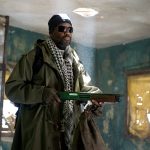🎬 The Godfather: A Masterpiece of Crime, Family, and Loyalty (1972)
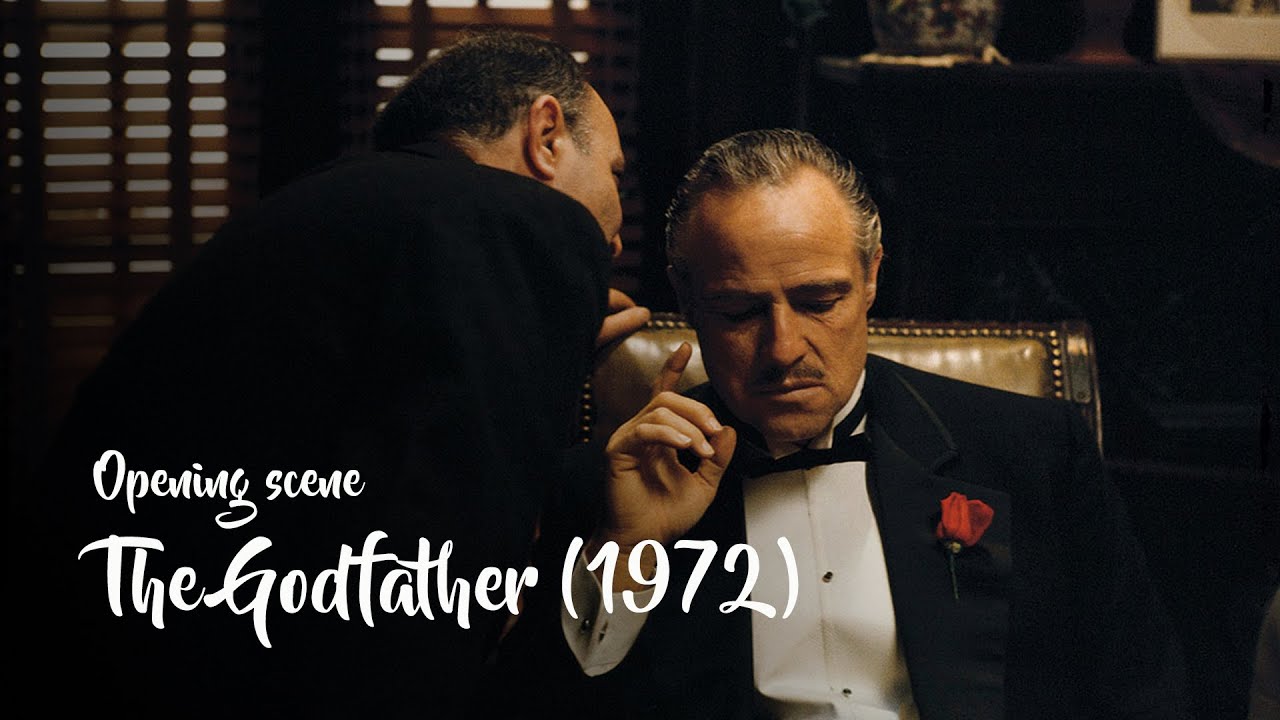
Directed by Francis Ford Coppola, The Godfather (1972) is an iconic crime drama that has defined the genre and left an indelible mark on cinema history. Based on Mario Puzo’s novel, the film follows the powerful Corleone family, exploring themes of loyalty, power, and the complexities of family ties. Starring Marlon Brando as Don Vito Corleone and Al Pacino as his son Michael, The Godfather is celebrated for its layered storytelling, nuanced characters, and unforgettable dialogue. With its rich atmosphere, timeless performances, and profound themes, The Godfather remains a landmark in film and a must-watch for anyone interested in the complexities of power and family.
💼 Plot Overview: A Saga of Power and Family Loyalty
The story begins in 1945 with Don Vito Corleone (Marlon Brando), the respected and feared head of the Corleone crime family, at the height of his influence. Known as “The Godfather,” Vito is deeply loyal to his family and his code of honor, balancing compassion with ruthless authority. When he refuses to enter the narcotics business with rival crime bosses, tensions arise, and the Corleone family is drawn into a brutal power struggle.
As Vito’s sons navigate this violent world, Michael Corleone (Al Pacino), the youngest and initially reluctant son, returns from military service with plans to remain outside the family business. But after an assassination attempt on Vito, Michael is forced to take drastic measures to protect his family, setting him on a path toward becoming the new head of the Corleone empire. The film chronicles Michael’s transformation from reluctant outsider to ruthless mafia leader, and the sacrifices he makes for loyalty and power.
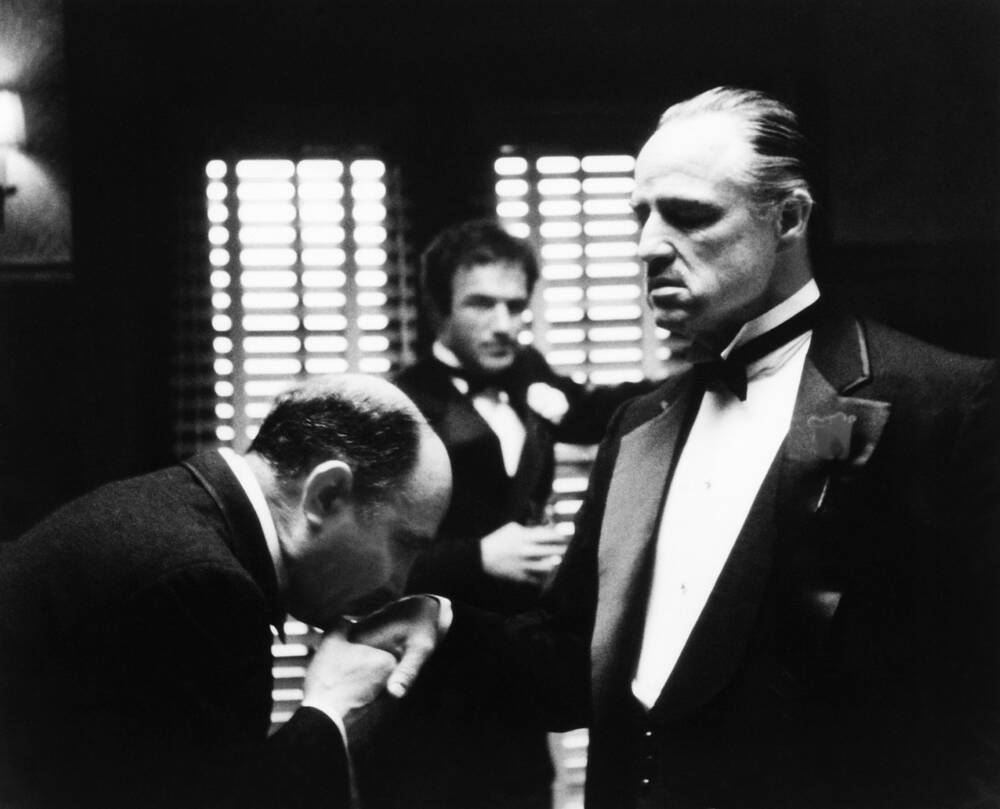
🎭 Legendary Performances and Complex Characters
- Marlon Brando as Vito Corleone: Brando’s portrayal of Vito is iconic, capturing the character’s quiet strength, dignity, and underlying menace. His performance is both commanding and understated, revealing a patriarch who deeply values loyalty, respect, and family bonds. Brando’s Vito is compassionate yet ruthless, a complex figure whose decisions shape the lives of those around him.
- Al Pacino as Michael Corleone: Pacino delivers a nuanced performance as Michael, brilliantly portraying his journey from an idealistic war hero to a calculated mafia boss. His transformation is gradual and tragic, with Pacino embodying the weight of power and the moral descent that accompanies it. Michael’s story arc is one of the most compelling character developments in film history.
- Supporting Cast: James Caan as Sonny Corleone, Robert Duvall as Tom Hagen, and Diane Keaton as Kay Adams each bring depth to their roles, highlighting the different facets of the Corleone family. Caan’s fiery performance as the impulsive Sonny, Duvall’s calm and composed Tom, and Keaton’s conflicted Kay create a powerful ensemble that elevates the film.
🎥 Atmospheric Cinematography and Iconic Imagery
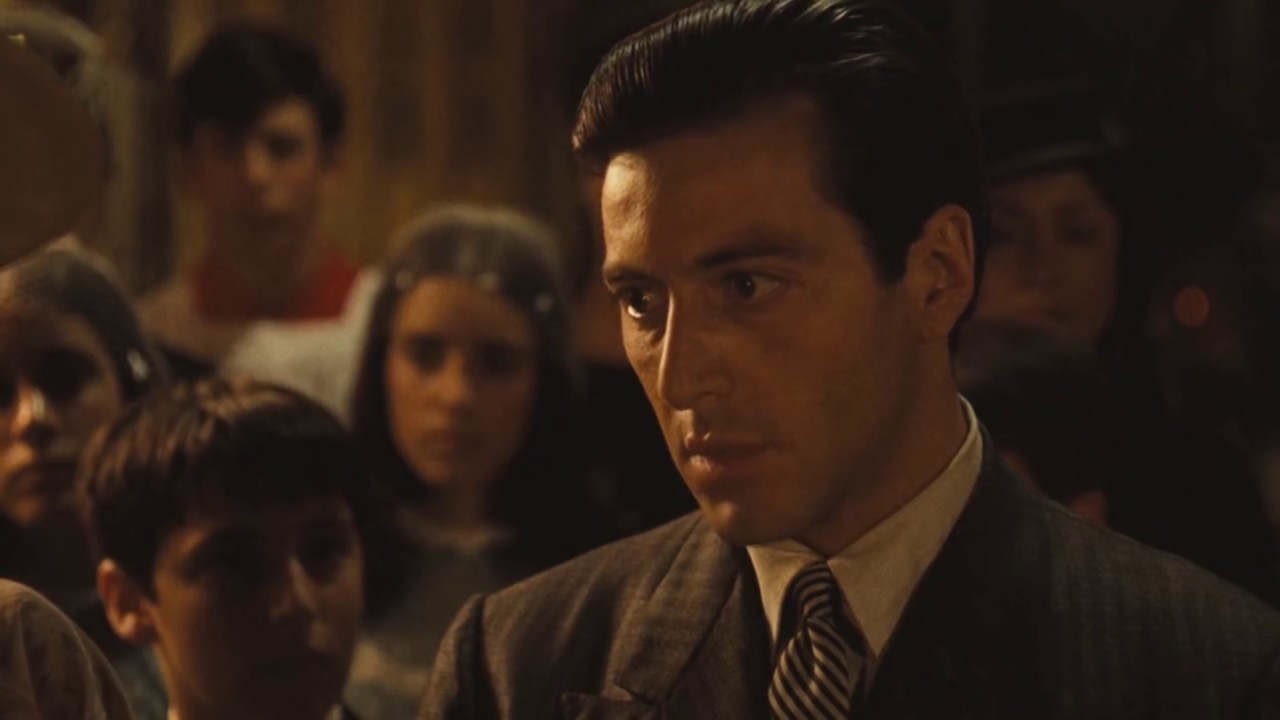
Cinematographer Gordon Willis’s use of shadow and low lighting creates a moody, almost operatic atmosphere that enhances the film’s themes of secrecy and moral ambiguity. The film’s iconic visuals, from Vito Corleone’s dimly lit office to Michael’s solemn stare, are etched in cinematic history. The careful framing and rich color palette capture both the opulence and the darkness of the Corleone world, blending elegance with a haunting undercurrent.
The film’s score by Nino Rota is equally iconic, with its haunting main theme perfectly encapsulating the film’s atmosphere of tragedy and inevitability. The music underscores key moments, enhancing both the tension and the melancholy that pervades the Corleone family saga.
💡 Themes of Power, Family Loyalty, and Moral Consequence
The Godfather explores the intricate bonds of family loyalty and the price of power. Vito’s commitment to family above all else is both a source of strength and a moral burden, a code that Michael inherits and ultimately transforms. The film examines the idea that power and success often come with a high cost, with characters who are bound to an unbreakable code of loyalty but haunted by the moral consequences of their actions.

The film’s exploration of loyalty, betrayal, and the corrupting influence of power is timeless. Michael’s descent into darkness, his sacrifices, and his isolation illustrate the tragic toll that power takes on those who seek it, capturing a universal truth about ambition, duty, and consequence.
🎬 Film Details:
- Title: The Godfather
- Director: Francis Ford Coppola
- Release Date: March 24, 1972
- Cast: Marlon Brando, Al Pacino, James Caan, Robert Duvall, Diane Keaton
- Genre: Crime, Drama
- Runtime: 2h 55m
- Notable Aspects: Iconic cinematography, powerful performances, exploration of family loyalty, legendary score
🏆 Final Verdict: A Cinematic Masterpiece and Cultural Landmark
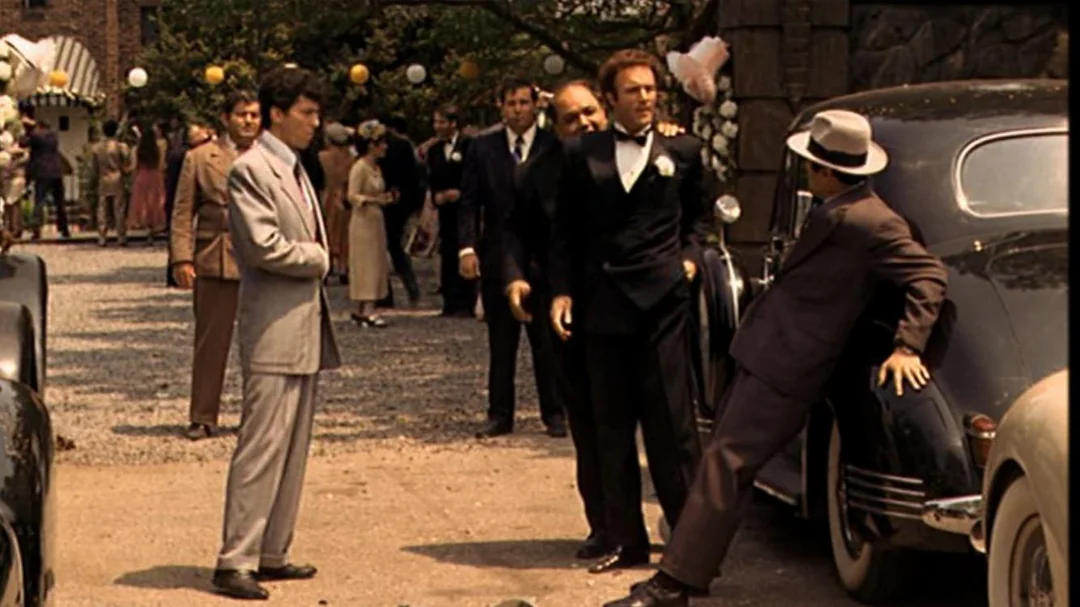
The Godfather is a masterwork of storytelling, with Coppola’s direction, Brando and Pacino’s unforgettable performances, and an engrossing narrative that captures the complex dynamics of family, power, and morality. Its influence on cinema and popular culture is immeasurable, shaping the crime genre and introducing audiences to unforgettable characters and themes. For its profound exploration of loyalty and ambition, its meticulous craft, and its lasting impact, The Godfather stands as one of the greatest films ever made, offering an unforgettable portrayal of the costs of power and the complexities of family loyalty.









